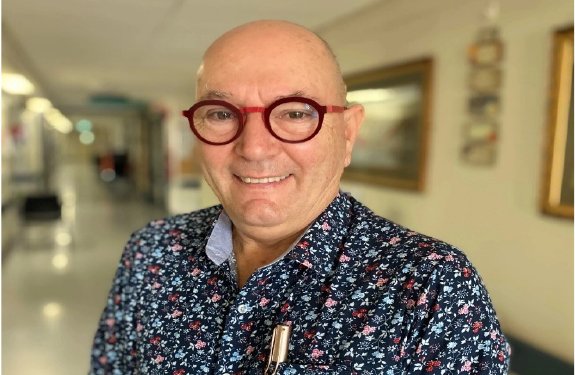News from the Ground | Spotlight Associate Professor Yoram Barak on Safety: Advancing Elder Abuse Detection
Does your daily conversation include phrases like “How have you been?”, “Are you alright?”, and “How can I help you?” If so, you have the capacity to help prevent Abuse of Older People (AOP) wherever you are. According to Associate Professor Barak, it is everyone’s duty to be aware of AOP and help when you encounter it.
Dr. Yoram Barak began his journey as a psychogeriatrician in medical school, where he found that psychiatry suited his personality and interests, allowing him to be creative in treating his patients. He is fascinated by the vast stories patients bring and enjoys the relationships and contacts he has with them, which help him understand the human conditions. His inclination towards geriatrics likely stems from his desire to advocate for people “with no voice.” Infants and older people with cognitive deterioration are usually vulnerable and unable to advocate for themselves. In our conversation, I sensed that Yoram wanted to give older people their voices back, which led him to embark on this career and develop research to protect them. He is also motivated by a desire to prevent AOP from perpetuating and to alleviate the suffering of those involved. His passion and his research team’s contributions have led to the ‘Faculty of Psychiatry of Old Age Prize for Best Mental Health Service Improvement’ award by the Royal Australian and New Zealand College of Psychiatrists.
Yoram was excited to share his research work and how he collaborates within Aotearoa and internationally to develop a “novel ultra-short” screening tool that will be effective and efficient. Through the team's effort and invaluable contributions from Prof. Robin Turner and Prof. Paul Glue, this tool that takes less than five minutes to complete, can be used by anyone supporting older people. He hopes to see gatekeepers such as general practices, emergency departments, non-governmental organisations, and rest homes using it to detect AOP. He emphasized that “you don't need to go to medical school to use it” and that it “can be used by practically anyone.” He hopes to see the tool implemented and validated soon.
The screening tool is based on contributions from a sizeable gathering of experts and stakeholders across the country through an online survey and cross-examining it with nearly 200,000 interRAI assessments collected over the past years. The tool will not only benefit New Zealand but also other countries globally. It also serves as a prelude to the work of Dr. Kathy Peri and Dr. Gary Cheung of the University of Auckland on risk assessment for AOP. Yoram hopes to see older people helped through the process of identifying, screening, and intervening when AOP arises. There are several types of AOP, including emerging issues like scams and seldom-discussed ones like sexual abuse. Older people can also be abused by policies when their needs are neglected by policymakers.
Nearing the end of the interview, Yoram urged that anyone can help identify AOP by being proactive and not assuming that older people will tell you about their abuses. If you notice them behaving differently from their usual selves, check in with them at the right time. Be sensitive and ask, 'Is anything happening? Can I help?' or 'Is someone not treating you right?' or 'You are not your best self, is something happening?' During Elder Abuse Awareness Week, would you like to try asking those questions, especially to people from CALD (Culturally and Linguistically Diverse) backgrounds?
Associate Professor Yoram Barak welcomes anyone who is interested in AOP topic to contact him at yoram.barak@otago.ac.nz.
Interviewed by Choi Kew, eCALD Manager, Health New Zealand | Te Whatu Ora
Image description: Associate Professor Yoram Barak, Associate Professor of Psychiatry at the Otago School of Medicine, Health NZ Southern Consultant Psychogeriatrician
